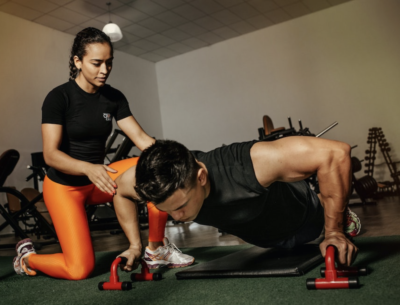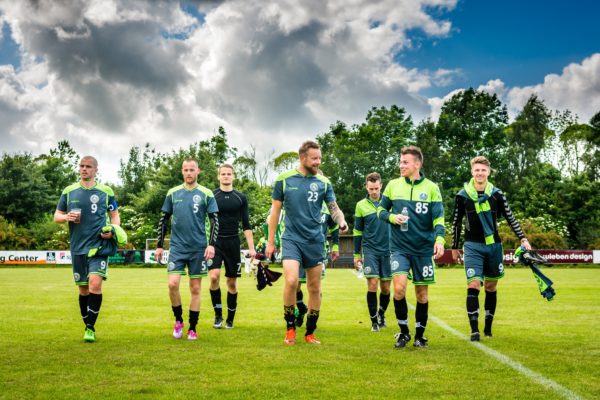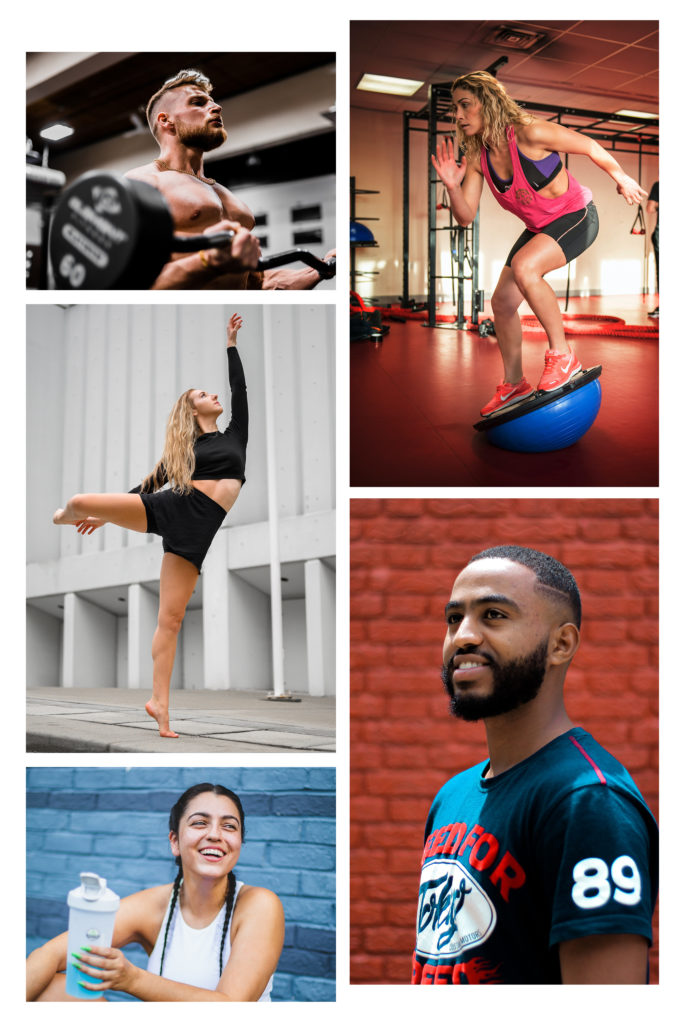Eating Disorder Treatment
that Understands Athletes
Athlete EDGE® at EDCare provides intensive, compassionate care from professionals who understand the world of sport and the challenges athletes face.
With our expertise and your commitment, you will get back to life and sport feeling confident, hopeful, and healthy.
Eating Disorders Are Injuries
Eating disorders can impact both an athlete’s sport performance and life beyond their sport, leading to mental, emotional, and physical concerns. Athletes struggling with an eating disorder such as anorexia, bulimia, binge eating, OSFED or ARFID, may experience:
- Physical injuries due to excessive and unbalanced workouts or compromised bone health
- Unrelenting standards of perfection
- Obsessive thinking about food, weight, or body composition
- Body image distress or dissatisfaction
- Anxiety, depression, and suicidal ideation
- Isolation from friends, family, and teammates
Like any injury, eating disorders require proper treatment from a multidisciplinary team. Athlete EDGE® at EDCare provides intensive, evidence-based, compassionate care from professionals who understand the nuances of sport culture and the unique challenges athletes face.
“I spent six months at EDCare Denver and am forever grateful for the care I received there. As part of the Athlete EDGE program, I experienced athlete-specific groups four times a week. These were some of my favorite groups! Within these groups and in my private sessions with my treatment team, I felt cared for as a person–not just a “patient.”
I came to EDCare wanting the info and the strict rules. I LOVE rules, and self-empowerment seemed like a pretty stupid idea to me. Turns out, the unique approach at EDCare allowed me to get outside of the paradigm of endless rules in favor of living and trusting myself.
If you are highly motivated and desire to truly break free from your eating disorder, I cannot recommend EDCare highly enough. My time there saved my life.”
– Hannah H.

Our facility in Denver, CO
Treatment Designed for Athletes
Most eating disorder treatment options do not cater to the specific needs of athletes. We understand that eating disorders in athletes are unique and require specialized help.
Located in beautiful Denver, Colorado, we offer competitive athletes and performers comprehensive treatment options. Housing accommodations are provided to athletes who do not reside near our facility.
Adult Athlete EDGE® Program (ages 18+)
- Residential
- Partial Hospitalization
- Intensive Outpatient
Adolescent Athlete EDGE® Program (ages 13-17)
- Partial Hospitalization
- Intensive Outpatient
In this setting, you will receive excellent, evidence-based care from professionals who understand eating disorders AND the athletic experience.
A Team Recruited for Athletes
You have dedicated yourself to your sport. We have dedicated ourselves to treating athletes and eating disorders by recruiting experts in the field to develop the Athlete EDGE® at EDCare.
Using our CAMSA® treatment model, we focus on healing the whole athlete – mind, body and spirit. Our team is dedicated to helping you interrupt the eating disorder and integrate recovery-focused skills into BOTH your athletic and daily life.
Our team of professionals is committed to treating the whole athlete and addressing every aspect of your eating disorder. This includes personal and sport concerns, family dynamics, performance issues, nutrition, and strength and conditioning.

Victoria Paszel, RD
Registered Dietitian
Photo & Bio Coming Soon!
Sport & Performance-Focused Treatment
In the context of personal and professional eating disorder treatment, you will get the benefits of sport-specific programming, including (click on each to expand):
Integrated Training & Exercise
We understand the importance of training for athletes and performers. Training is intentionally and mindfully reintegrated into treatment when medically and clinically appropriate and supportive of treatment goals. This is done in a way that is collaborative with the athlete’s local support system or home team.
With the help of our strength and conditioning coach and mental performance coach, athletes will explore the connection between exercise, training, and eating
disorder behaviors. Together, we work to help athletes establish a plan to maximize their opportunities and return to life and sport.


Your Team Matters to Us
Working with a new team can feel challenging. For this reason, our team is intentional about connecting with an athlete’s home team and support system throughout treatment. In addition to integrating family into the treatment process, we work closely with their mental health providers, medical team, and coaching staff. In fact, members of their home team are invited to join our weekly staff meeting as we discuss treatment goals and progress.
When discharged from our program, a game plan is developed in collaboration with the athlete and their support system, allowing them to return to doing what
they love as an athlete.
“I am incredibly grateful for the time I spent in the Athlete EDGE® at EDCare. When I entered the program, I was trying to compete while unprepared and unmotivated. EDCare not only gave me the tools to relearn how to properly fuel myself for athletics (and life in general), but they also helped me find joy again in the sport I’d dedicated my life to. I haven’t felt as fulfilled, strong, and energized as I do now in all my years as an athlete, and I owe that to my time in the Athlete EDGE® at EDCare program.”
– Alice Merryweather
Frequently Asked Questions
In the context of personal and professional eating disorder treatment, you will get the benefits of sport-specific programming, including (click to expand):









